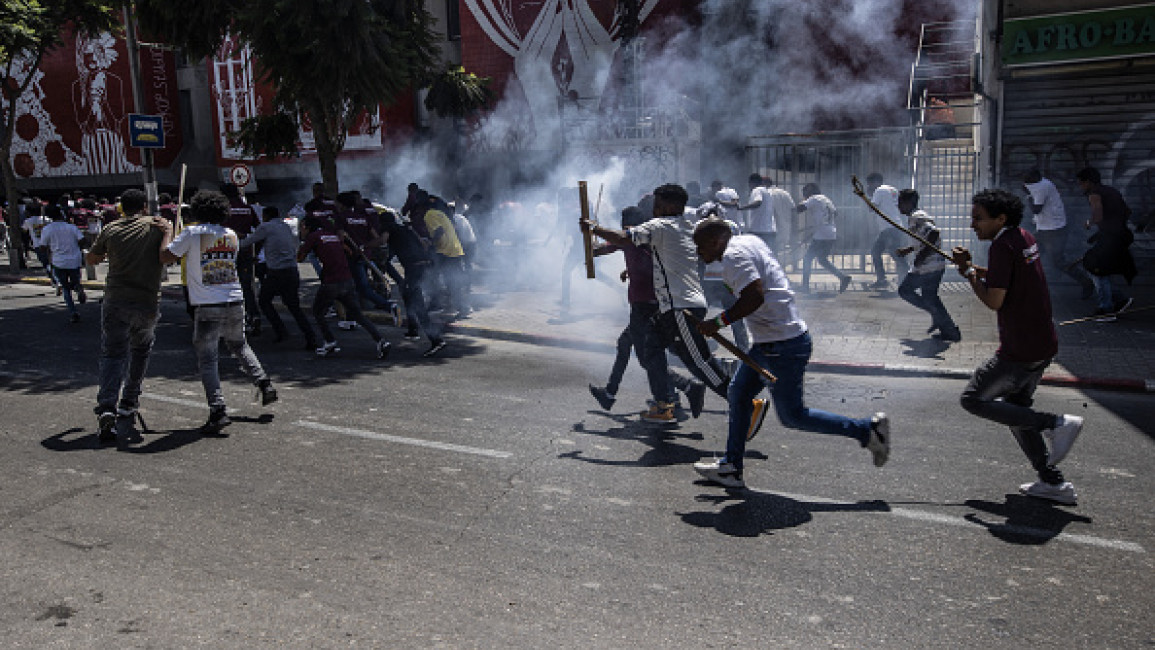Dozens injured in a protest by asylum-seekers outside Eritrean Embassy in Israel
Violent protests have erupted between hundreds of Eritrean asylum-seekers and Israeli police in Tel Aviv on Saturday during a protest against an event organised by the Eritrean Embassy.
The Israeli police said 27 officers were injured in the clashes, and at least three protesters were shot by police firing live rounds after they felt "real danger to their lives."
Israeli police in riot gear and on horses tried to corral the protesters, who broke through barricades and hurled chunks of sidewalk, batteries and rocks at the police.
Similarly violent protests have popped up all over the world as Eritrea, one of the world's most repressive countries, marks 30 years of independence with festivals held by Eritrea's diaspora across Europe and North America. Earlier this year, Eritrea called anti-government protesters marching against these events "asylum scum."
NOW: Israeli Border Police use stun grenades, tear gas, and live fire to disperse hundreds of Eritrean asylum seekers during a protest against a pro-regime “festival” organized in South Tel Aviv by the Eritrean embassy. pic.twitter.com/n7jP98WVbE
— +972 Magazine (@972mag) September 2, 2023
Eritreans make up the majority of the more than 30,000 African asylum-seekers in Israel. They say they fled danger and persecution from a country known as the "North Korea of Africa" with forced lifetime military conscription in slavery-like conditions.
President Isaias Afwerki, 77, has led Eritrea since 1993, taking power after the country won independence from Ethiopia in a long guerrilla war. There have been no elections, there's no free media and exit visas are required. Many young people are forced into military service with no end date, human rights groups and United Nations experts say.
The nation on the Horn of Africa has one of the world's worst human rights records, and the asylum-seekers fear death if they were to return.
In Israel, they face an uncertain future as the state has attempts to deport them. But despite the struggle to stay, in often squalid conditions, many say they enjoy some freedoms they never would have at home - like the right to protest.


![A pro-Palestinian encampment at Columbia persists, despite recent arrests. [Brooke Anderson/The New Arab]](/sites/default/files/styles/image_330x185/public/2024-04/417084c8-3251-4705-8422-058fca1d5709.jpg?h=ddb1ad0c&itok=T2cXVfXy)
